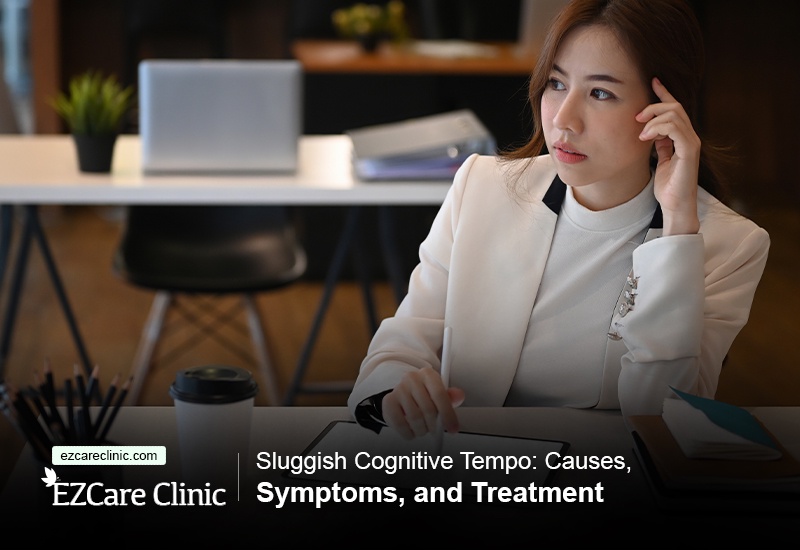Sluggish Cognitive Tempo, often abbreviated as SCT, is a syndrome related to Attention Deficit Hyperactivity Disorder (ADHD), albeit not officially recognized as a medical diagnosis. While not formally recognized, the symptoms exhibited by individuals with SCT share similarities with those of ADHD, particularly the inattentive type. Studies have indicated a significant correlation between SCT and ADHD, with research suggesting that 30% to 63% of patients with the inattentive type of ADHD also exhibit high levels of SCT.
Despite ongoing debates about its nature and recognition, SCT has been observed to have adverse effects on an individual's functioning, leading to diminished quality of life, increased stress levels, lower socioeconomic status, and diminished educational success. To comprehend SCT better, it's essential to delve into its history, symptoms, potential causes, diagnosis, areas of life impairment, and treatment options.
1. Understanding Sluggish Cognitive Tempo
SCT, first coined in 1948, shares symptomatic similarities with ADHD's inattentive type. Individuals with SCT often struggle with attention and focus but typically exhibit less hyperactivity or impulsivity compared to those with ADHD. While the exact cause of SCT remains unknown, researchers have developed explanations for how its symptoms affect various aspects of an individual's life.
2. Symptoms Associated With Sluggish Cognitive Tempo
Symptoms commonly associated with SCT include slow or sluggish behavior, daydreaming, fatigue, forgetfulness, and difficulties expressing thoughts, among others. These symptoms overlap with those of inattentive ADHD, making diagnosis and differentiation challenging.
3. Causes of Sluggish Cognitive Tempo
While the precise causes of SCT are yet to be determined, research suggests various factors, including heredity, prenatal exposure to alcohol, brain structure and function, acute lymphoblastic leukemia, IQ, and problematic childhoods, may contribute to its development.
4. Diagnosing Sluggish Cognitive Tempo
Due to its absence from the DSM literature, diagnosing SCT requires careful evaluation by psychiatrists or psychologists. Standardized diagnostic tools and scales, such as the Barkley Sluggish Cognitive Tempo scale and the Concentration Inventory, may be used to measure symptoms and gauge severity.
5. Areas of Life Impairment
SCT can significantly impact an individual's socioemotional functioning, mental functioning, academic performance, and overall functional impairment. These effects can lead to social withdrawal, poor academic achievement, and difficulties in daily functioning.
6. Prognosis and Treatment of Sluggish Cognitive Tempo
While SCT prognosis and treatment approaches are still being explored, interventions commonly used for ADHD, such as medication, therapy, and lifestyle changes, may also be beneficial for individuals with SCT. Medications like stimulants and therapy modalities like Cognitive Behavioral Therapy (CBT) can help manage symptoms and improve functioning.
Get the signs of ADHD under control- Click the button below.
In conclusion, while SCT may not be officially recognized as a distinct disorder, its impact on individuals' lives cannot be disregarded. Seeking professional help for diagnosis and treatment is crucial for managing symptoms and improving overall quality of life. If you or a loved one exhibits symptoms of SCT, consider scheduling an appointment with a healthcare provider to explore appropriate interventions.
Sources:
- Brief report: Sluggish cognitive tempo among pediatric survivors of acute lymphoblastic leukemia.
- The Child Concentration Inventory (CCI): Initial Validation of a Child Self-Report Measure of Sluggish Cognitive Tempo.


No comments yet